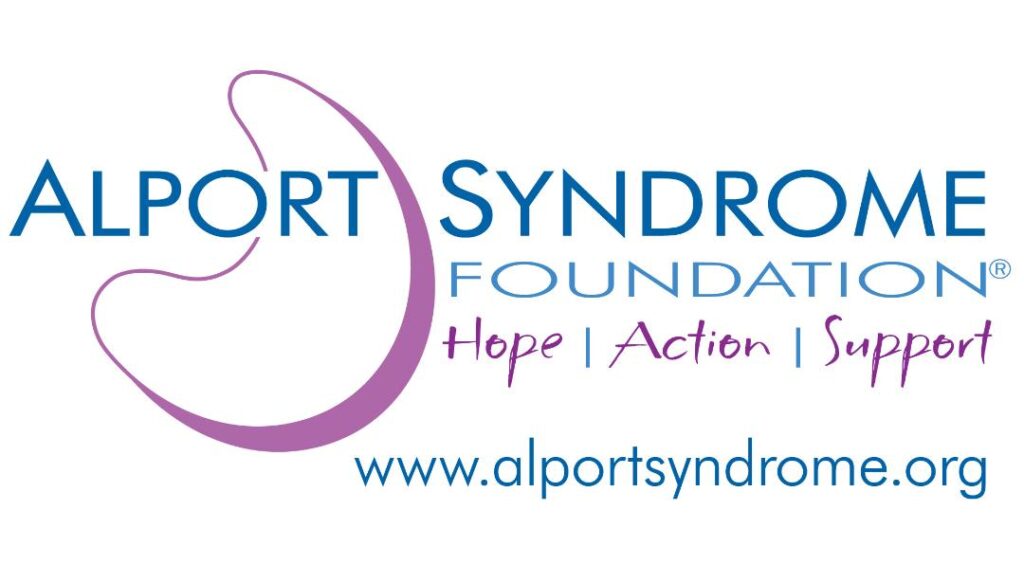Alport Syndrome Foundation (ASF) has partnered with the National Kidney Foundation (NKF) to create a new registry for Alport patients: NKF Patient Network – Alport Syndrome.
What is the NKF Patient Network – Alport Syndrome?
Over the last several years, NKF has been investing in and building a platform to create the United States’ first-ever interactive kidney disease patient registry. The overall registry is called the NKF Patient Network, which launched in 2021. This national patient registry is intended for all kinds of kidney patients at all stages of kidney disease. The partnership has led to the development of the NKF Patient Network – Alport Syndrome, which is part of the overall NKF Patient Network. The NKF Patient Network – Alport Syndrome will capture data that’s specifically relevant to Alport syndrome, including currently understudied aspects of the disease and quality of life information.
The NKF Patient Network – Alport Syndrome will offer a secure portal for U.S. patients ages 18+ to contribute their health information and experiences, join a community of other patients dealing with kidney disease, and find out about the latest clinical trials, treatments, education, and tips for good health. Patients can choose to manually enter information or link it, with permission, to an electronic health record (EHR). Digital files, such as genetic testing results and audiograms, can also be directly uploaded to the platform. The NKF Patient Network – Alport Syndrome will provide a community platform for patients to manage this disease while also gathering comprehensive data for scientists working on cutting-edge treatments and maybe even a cure.

The architecture of the registry platform also has the capacity to grow to become an international registry, which is the goal of both NKF and ASF. This is particularly important because Alport Syndrome Foundation has patient members from 70+ countries, has built relationships with Alport researchers globally, and several current clinical trials include clinical trial sites and Alport patients in countries outside the U.S.
Fast Facts about Alport syndrome
1. There are tens of thousands of people all over the world living satisfying, productive lives with Alport syndrome. While it’s estimated that less than 200,000 people in the U.S. have Alport syndrome, recent research suggests it’s likely that more people have the condition than previously thought.
2. Alport syndrome causes a decline in kidney function and can cause hearing loss and
eye abnormalities. While rare, some patients may experience diffuse leiomyomatosis,
which causes noncancerous tumors found in smooth muscle tissue, including the
esophagus. There are also clinical reports and increasing patient reports of instances of
aortic and abdominal aneurysms in Alport families, especially in those with a history of
cardiac complications.
3. Alport syndrome is caused by genetic mutations that affect the type IV collagen found in
the kidneys, ears, and eyes. It is passed down genetically in families and sometimes
occurs spontaneously, meaning you might be the first in your family to have it. The three
commonly studied types of Alport syndrome are X-linked (the most documented),
autosomal recessive, and autosomal dominant.

4. Both males and females are affected by Alport syndrome. While many females may
initially have milder symptoms and experience a later onset of disease progression, it is
not accurate to think of them as genetic “carriers.” Seeing a nephrologist regularly and
following recommended treatment guidelines for Alport syndrome patients is important for
both females and males.
5. The current standard of treatment is ACE/ARB medications, which research shows can
delay decline of renal function. These medications are prescribed to Alport patients as
young as 12 to 24 months of age to slow the spilling of protein from the kidneys, which
causes scarring and a decline in kidney function. Although this class of medications is
widely used to treat high blood pressure, they are recommended as standard treatment for
Alport syndrome whether patients have high blood pressure or not.






